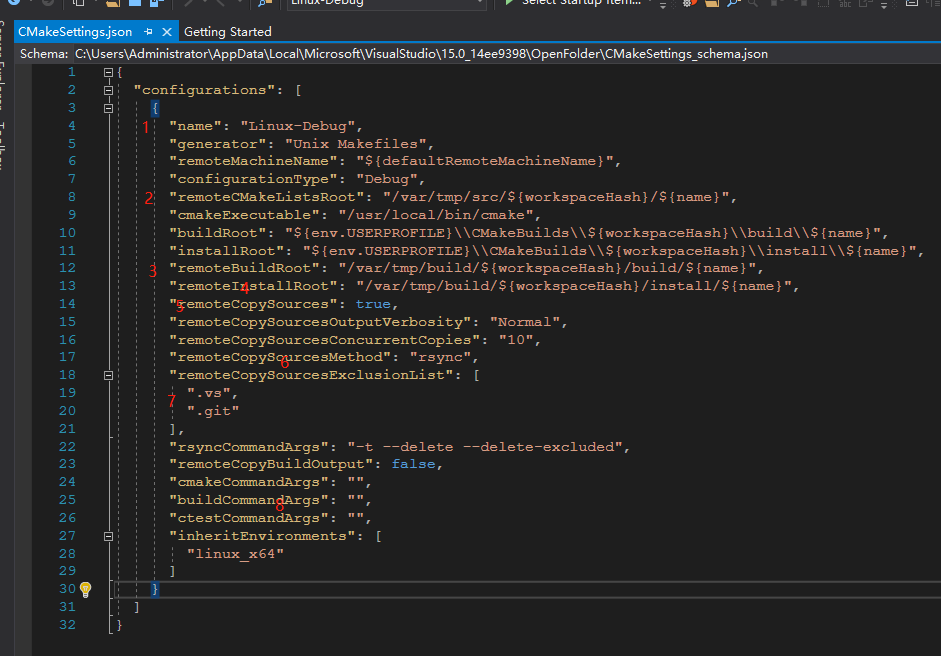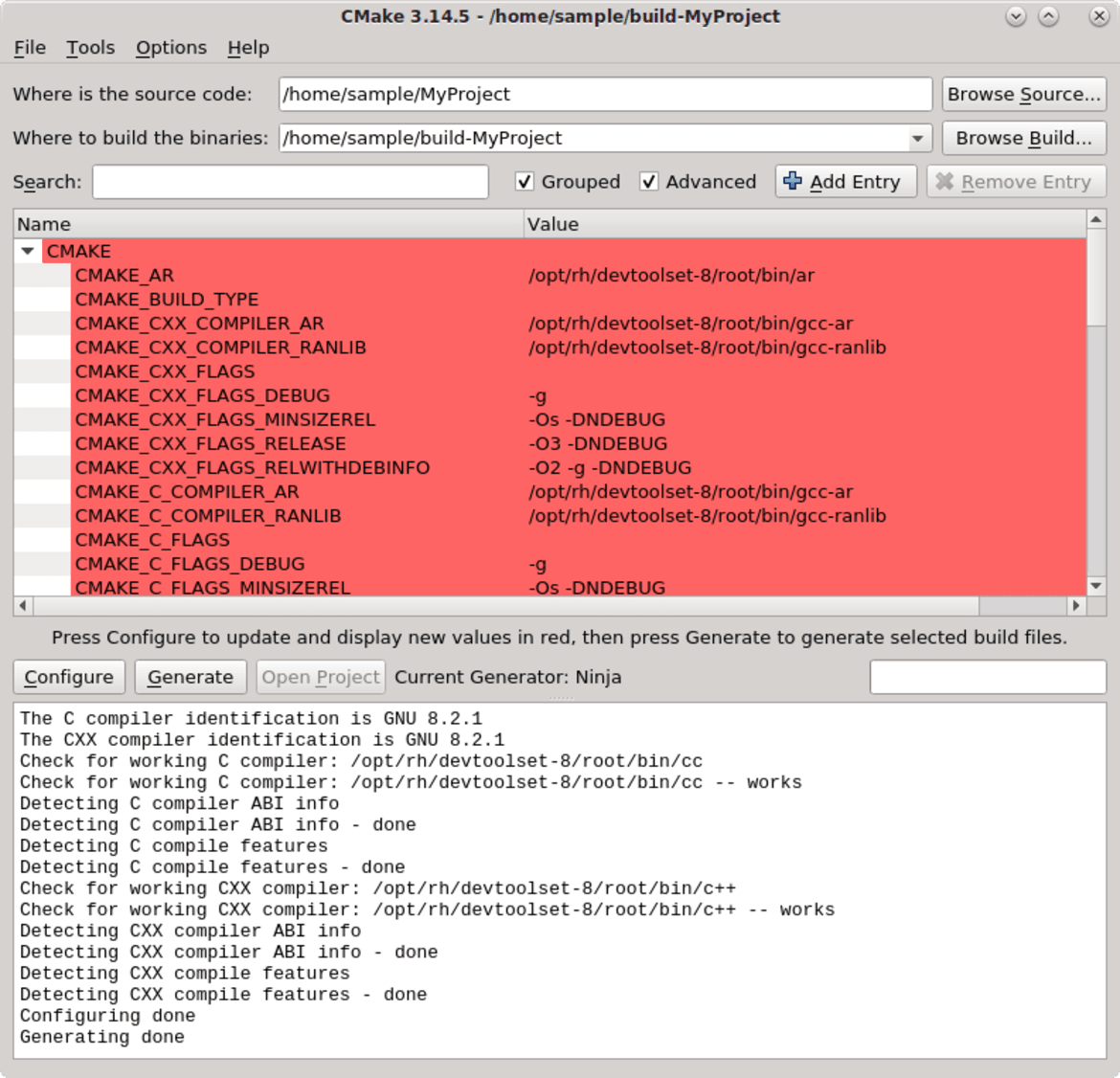

#Cmake linux fermilab software#
Hashes handle combinatorial software complexity.You can use Visual Studio 2019 to build and debug on a remote Linux system or WSL, and CMake will be invoked on that system. § Installed packages automatically find dependencies Note: we hash the metadata, not the artifact. § Hash of directed acyclic graph (DAG) metadata is Configurations of the same package can coexist. § Each configuration installed in a unique directory.
#Cmake linux fermilab install#
Install dep1 Install dep2 Install package…
#Cmake linux fermilab how to#
packages are templates: they define how to build a spec.

^ (caret) adds constraints on dependencies Constraints are optional – specify only what you need. Each clause adds a constraint to the spec § Each expression is a spec for a particular configuration $ spack install cflags="-O3 –g3" setting compiler flags $ spack install +threads +/- build option CLI syntax makes it easy to install different ways.Run on laptops, Linux clusters, and some of the

Build software stacks for scientific simulation and – MPI, BLAS, LAPACK, others like jpeg/jpeg-turbo, etc. Swap implementations of ABI-incompatible libraries.Change compilers and flags in builds (keep provenance).Facilitate experimenting with performance options is a general purpose, from-source package manager.HPC, Big Data, and Data Science Devroom at FOSDEM 2018 Lawrence Livermore National Security, LLC Department of Energy by Lawrence Livermore National Laboratory This work was performed under the auspices of the U.S. Finally, We’ll talk about how Spack integrates with the US exsascale project’s open source software release plan, and how this will help glue together the HPC OSS ecosystem as a whole." We’ll also talk about challenges for implementing relocatable binaries with a multi-compiler system like Spack. We’ll talk about challenges to providing binaries for a combinatorially large package ecosystem, and what we’re doing in Spack to address these problems. This talk will introduce binary packaging in Spack and some of the open infrastructure we have planned for distributing packages. Spack supports relocatable binaries for specific OS releases, target architectures, MPI implementations, and other very fine-grained build options. x86_64, and do not take advantage of vector instructions or architecture-specific features. Most binary distributions assume a lowest-common-denominator architecture, e.g. However, we’ve recently added binary packaging capabilities, which pose unique challenges for HPC environments. Like other HPC package managers, Spack was designed to build packages from source. "Spack is a package manager for cluster users, developers, and administrators, rapidly gaining populartiy in the HPC community. In this deck from FOSDEM 2018 in Brussels, Todd Gamblin presents: Binary Packaging for HPC with Spack.


 0 kommentar(er)
0 kommentar(er)
